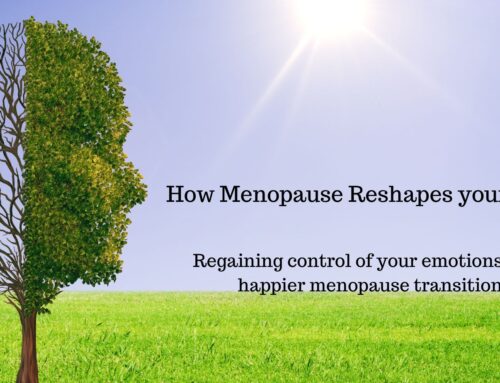Menopause is a natural stage of life that all women experience, yet it is still a topic that is often shrouded in taboo and misconceptions. While the physical symptoms of menopause are well-known, the emotional and psychological impact can be just as significant, particularly in terms of a woman’s confidence and career.
One of the most common ways that menopause can affect a woman’s confidence is through changes in her appearance. Menopause can cause a variety of physical changes, such as weight gain, skin changes, and hair loss, which can all contribute to a woman feeling less confident in her appearance. This can be especially challenging for women who have always taken pride in their appearance, as it can feel like a loss of identity.
In addition to physical changes, menopause can also have a significant impact on a woman’s emotional state. Hormonal fluctuations can cause mood swings, anxiety, and depression, all of which can make it difficult to feel confident and in control. This can be particularly challenging for women who are in high-stress careers, such as leadership positions, where confidence and assertiveness are often essential.
Menopause symptoms like brain fog, fatigue, anxiety, and mood swings can have a profound impact on a woman’s ability to do her job. Brain fog and fatigue can make it difficult to concentrate and stay productive, while anxiety and mood swings can lead to emotional exhaustion and interpersonal conflicts. These symptoms can also affect a woman’s confidence and self-esteem, which may lead to a decrease in job performance and job satisfaction. It is important for employers to recognize and support women going through menopause to ensure they can continue to contribute their valuable skills and experience to the workforce.
Furthermore, menopause can also bring with it a variety of physical symptoms, such as hot flashes and insomnia, which can make it difficult to perform well at work. Women may find themselves struggling to concentrate or feeling fatigued, which can lead to a decrease in productivity and overall job performance.
All of these factors can contribute to a woman feeling less confident in her abilities and less motivated to pursue career advancement. This can be especially problematic in industries where women are already underrepresented, as it can perpetuate the gender pay gap and limit opportunities for female professionals.
So, what can be done to support women going through menopause in the workplace? Firstly, it is important to recognize that menopause is a normal and natural process, and women should not feel ashamed or embarrassed to talk about their experiences. Encouraging open and honest dialogue can help to break down stigmas and ensure that women feel supported and understood.
Secondly, employers can provide practical support, such as flexible working arrangements or access to confidential counselling services, to help women manage their symptoms and prioritize their wellbeing. This can go a long way in demonstrating that the company values its female employees and is committed to creating a positive and supportive workplace culture.
In conclusion, menopause can have a significant impact on a woman’s confidence and career, but it doesn’t have to be a barrier to success. By providing support and understanding, employers can help women to navigate this challenging time with confidence and continue to excel in their careers.
Regenerate response
Menopause symptoms can be a real nightmare for working women, wreaking havoc on their ability to perform their jobs effectively. The brain fog can make even the simplest tasks feel like a monumental challenge, leaving them feeling frustrated and overwhelmed. The fatigue can leave them feeling completely drained and unable to muster the energy required to tackle their daily workload. The anxiety and mood swings can take an emotional toll, causing them to feel irritable, emotional, and short-tempered. These symptoms can leave them feeling like they’re failing at their job and lacking the confidence they need to succeed. Employers must recognize the impact of menopause on women in the workforce and provide the necessary support and accommodations to help them continue to thrive.
Has menopause symptoms affected your career?







Leave A Comment